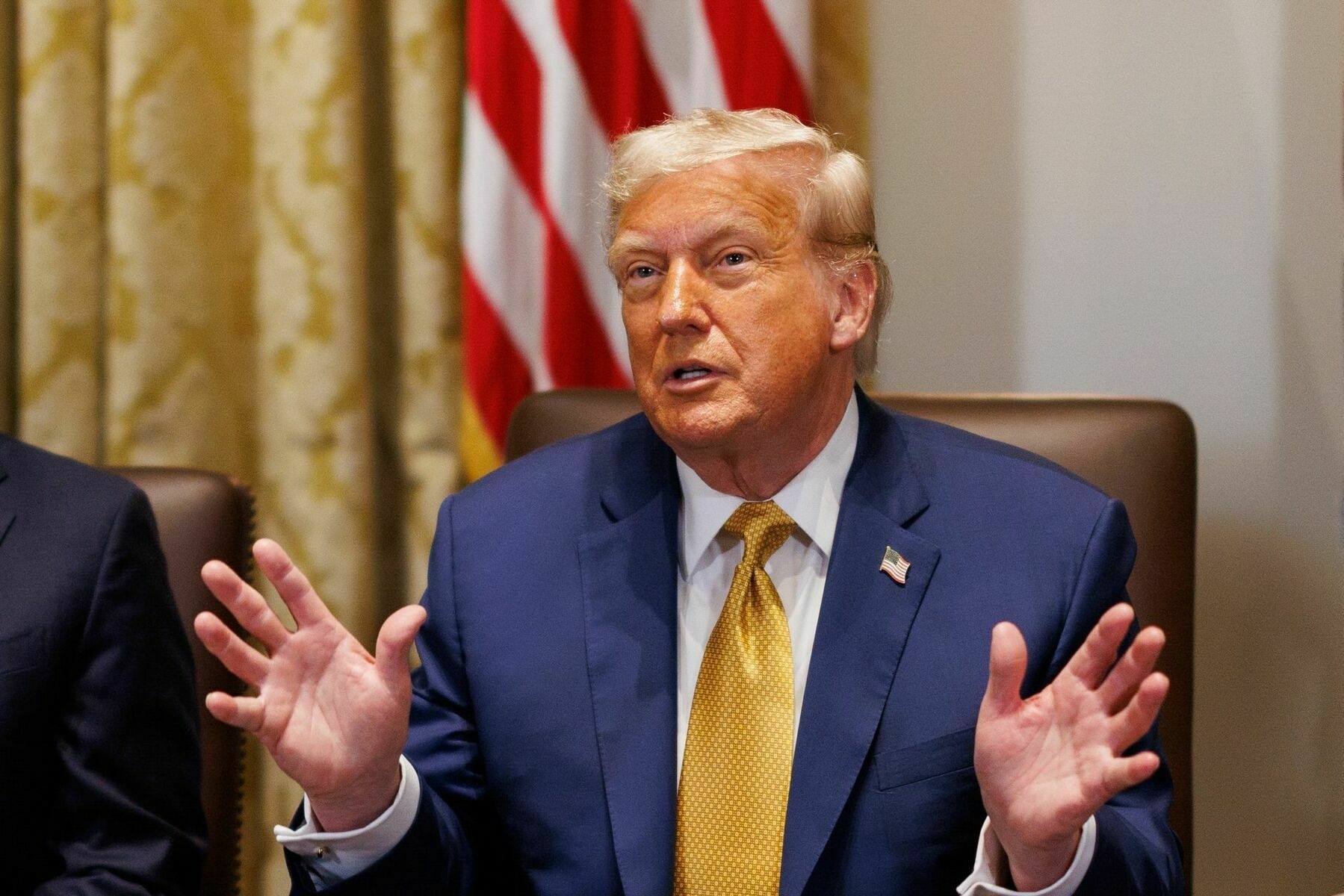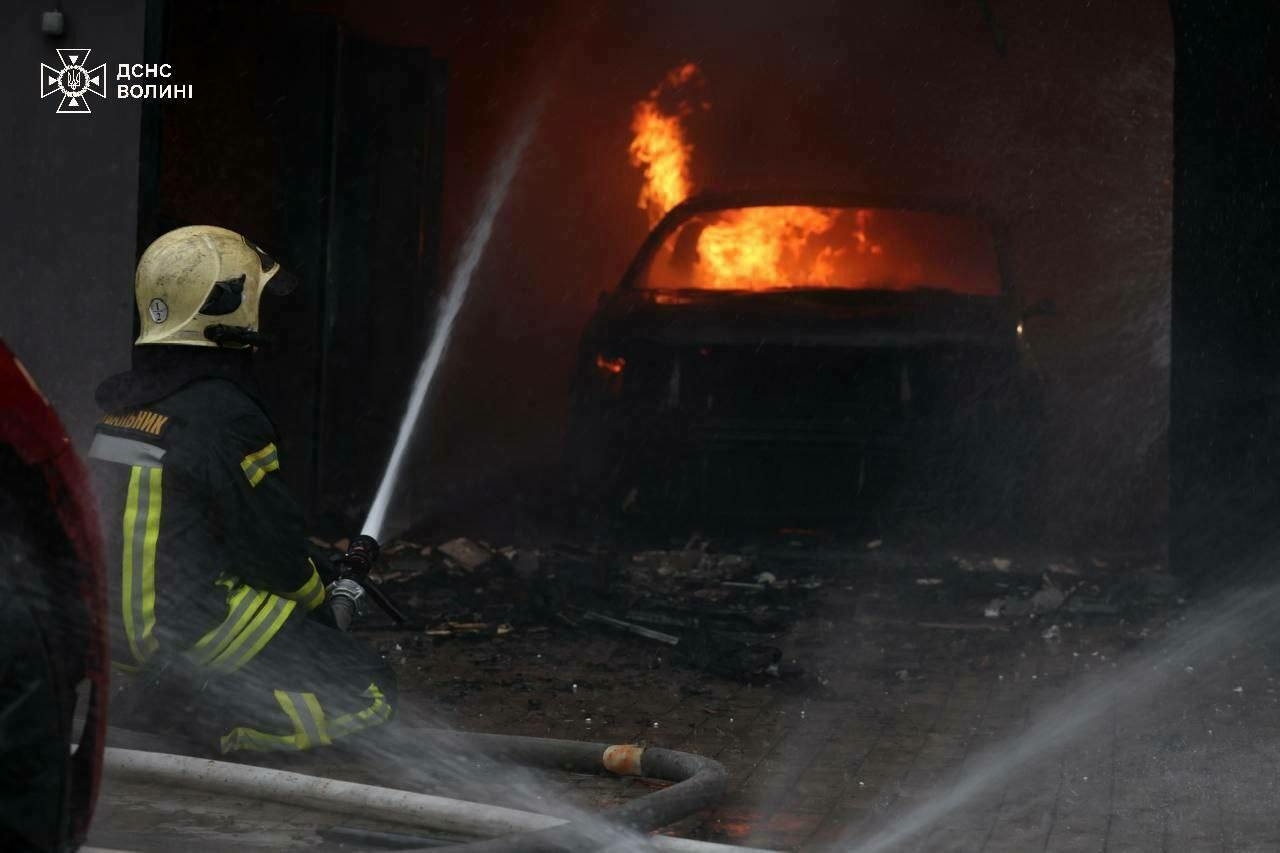
Ukrainians breathed a sigh of relief of sorts this week after it was confirmed that U.S. President Donald Trump had ordered the continuation of shipments of critical military aid after a brief pause.
The days-long hiccup alarmed a Ukraine beset with ever-escalating Russian air strikes and a dwindling supply of the means to stop them, and is just the latest instalment of a saga riven with uncertainty over Washington’s willingness to give Ukraine what it needs to defend itself against Russia.
A lack of Patriot interceptor missiles and general economizing on anti-air defense have been the most noticeable results of unreliable U.S. aid in recent months, with many more civilians dying in Russian air attacks.
And even news of a partial resumption of supplies has been met by some on the front lines of Russia’s aerial attacks with skepticism.
“Trump decided to send Ukraine only 10 Patriot interceptor missiles out of 30 that were stuck in Poland,” Oleksiy, a deputy commander who coordinates air defense units in Kyiv Oblast, told the Kyiv Independent, requesting to be identified by first name only for security reasons.
“So it works out that they started out by freezing the transfer of 30, and now are sending only 10 of them — and that’s called ‘aid’?"
Trump’s ever-shifting stance on Ukraine
Trump’s position on Ukraine and his support for the country’s fight against Russia’s full-scale invasion has been a rollercoaster ride, yet there are signs that Kyiv is currently at an all-time high point of his presidency.
Although the U.S. has yet to take concrete steps, such as further sanctions to force Moscow to end its war, Trump’s public statements in recent weeks have softened towards Ukraine and hardened against Russia and its President, Vladimir Putin.
“We get a lot of bullsh*t thrown at us by Putin,” he said at a cabinet meeting on July 8.
“He’s very nice all the time, but it turns out to be meaningless."
Meanwhile, President Volodymyr Zelensky described his most recent phone call with Trump on July 4 as “the best conversation in all this time."
“Patriot (missiles) are key to protection from ballistic (missiles). We discussed several other important issues that our teams will work out in detail at meetings in the near future,” Zelensky said on July 5 a day after the phone call.
Since the conversation, Trump has reversed at least some of the frozen military aid, with Axios reporting 10 more PAC-3 Patriot interceptor missiles coming to Ukraine. His administration is also teasing another Patriot anti-air missile system, the Wall Street Journal (WSJ) reported.
Axios reporting suggested ongoing negotiations between the U.S. and Germany over the latter providing more Patriot systems as well. An unnamed source advised that Ukrainians “should feel better than they have at any point during the Trump presidency (…) Putin was a jerk,” Axios reported.
Trump is also reportedly now on board with a tough new sanctions package on Russia. Even the New York Post, Trump’s favorite newspaper, recently put out an op-ed calling for re-arming Ukraine.
But this apparent change of tone from Trump is being treated with caution in a Ukraine already accustomed to an unpredictable, change-on-a-dime White House, with those who spoke to the Kyiv Independent unwilling to sit back and assume it’s an indication of a long-term trend they can rely on.
“Trump, as always, says one thing and does another,” Bohdan Danyliv, who heads military aid for Ukrainian charity the Prytula Foundation, told the Kyiv Independent.
“It’s another reason we need to shake up the European Union, so they become more nimble and make decisions quicker, because with these announcements — and all of Trump’s new moods — we all need to learn how to live without America. Not just Ukraine, but all of Europe."
At a June 8 event in Washington, D.C., Tom Karako, director of the Center for Strategic and International Studies, noted the contradictory messaging coming out of the White House in relation to the global distribution priorities of Patriot interceptors.
The U.S. last month rerouted two Patriot systems from Japan and South Korea to defend against 14 Iranian ballistic missiles on a base at al-Udeid during a strike pre-choreographed to effectively allow Iran to make a public retaliation for Israeli and U.S. strikes on its nuclear facilities.
“I’m scratching my head thinking, wait a minute, we can’t spare 30 PAC-3s for Ukraine, but we’re gonna spare probably a similar number to make the Iranians feel better about themselves?” Karako said.
But Ihor Fedirko, who recently left Ukraine’s Strategic Industries Ministry to lead the Ukrainian Council of Defense Industry, spoke with more optimism about the recent softening of Trump’s attitude.
“I consider the return of an ally like the United States to be a huge victory for NATO and Ukraine,” Fedirko told the Kyiv Independent.
“It’s just the beginning — I think that after these 10 missiles, more systems will come, and our air defense will be renewed, but these past three months have been a stress test for us — that is, we didn’t just throw up our hands and say, ‘without the U.S., we’ll die, we surrender,’” Fedirko said.
“No, we invested more into our military-industrial complex and international aid."
 The Kyiv IndependentAbbey Fenbert
The Kyiv IndependentAbbey Fenbert
